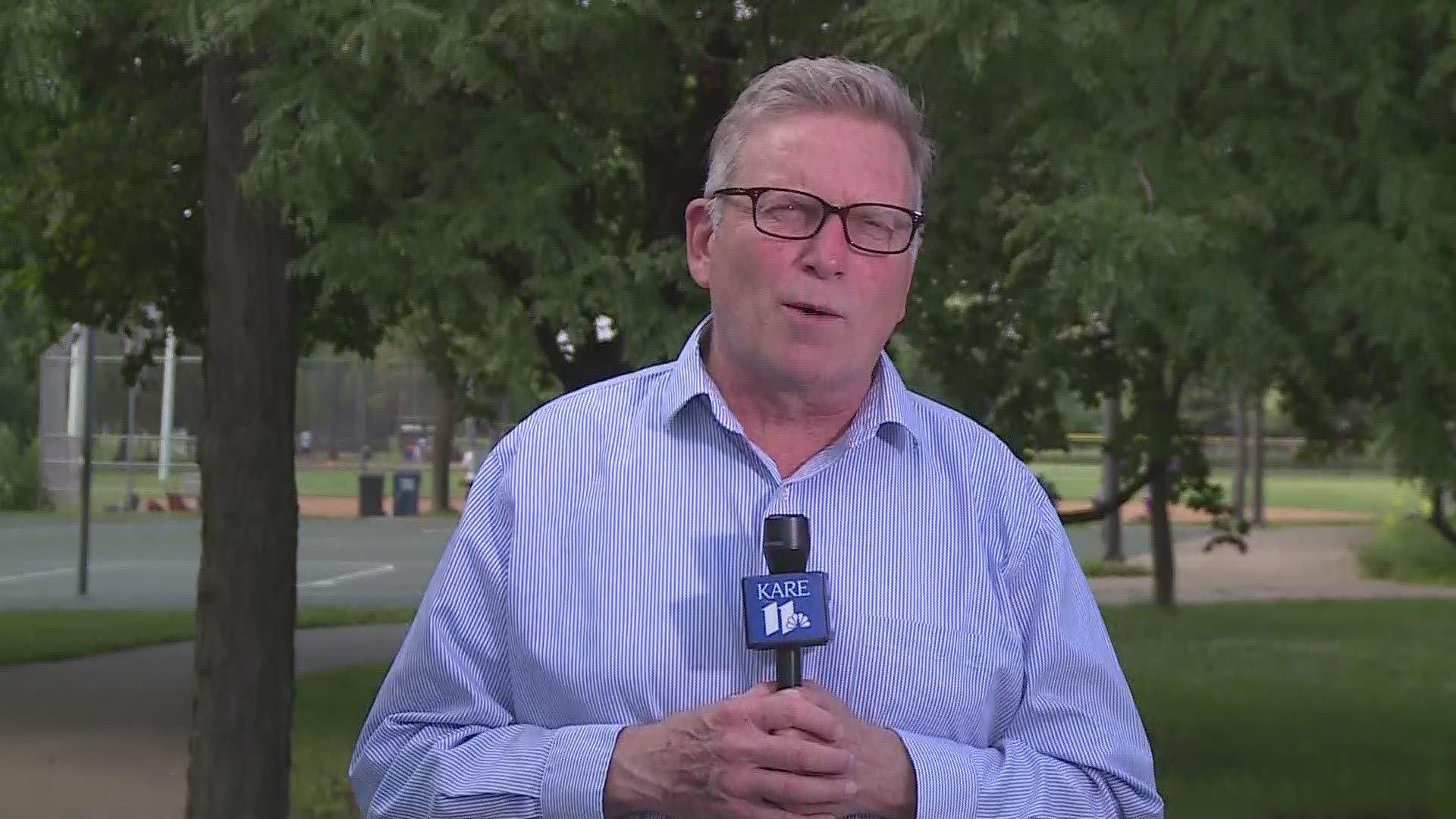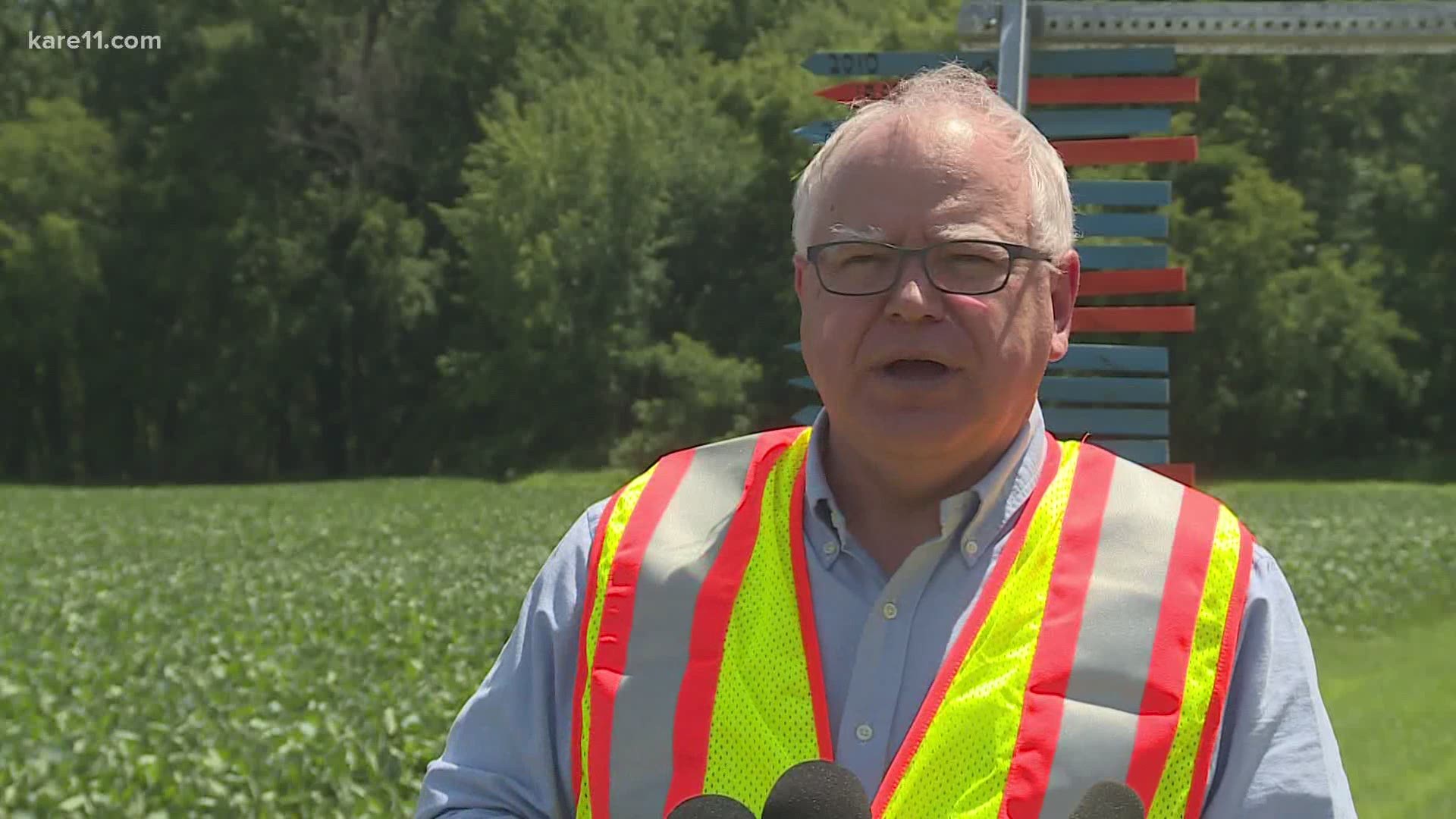MINNEAPOLIS — Gov. Tim Walz joined Republican lawmakers in the small southern Minnesota town of Henderson Thursday to call attention to the types of projects that will be in limbo until the Legislature passes a public works construction bonding bill.
Annual flooding in the Minnesota River Valley often shuts down three of the four ways of getting in and out of that Sibley County city of 1,000. So far in 2020, Minnesota Highways 93 and 19 have been closed a combined total of 22 days. In 2019 those routes were washed out 61 days between them.
"This is just a graphical representation of the pain that Henderson has been feeling," Mayor Paul Menne told reporters, as he pointed to a post with small banners marking the high-water marks of flooding along Highway 93 through the years.
Nine of the top 15 highest flooding levels have taken place since the year 2000. Menne said when that stretch of highway is closed by flooding, motorists can lose up to an hour taking detours to get to their destinations.
"We're fortunate this project is getting some legs and getting some time, and we're very appreciative of that."
The city is seeking $25 million in bonding aid from the state to raise the elevation of part of Highway 93 by eight feet to get it out of the flood plain. The project would also extend the length of the bridge that crosses the Rush River, a tributary that flows into the Minnesota River south of Henderson.
It's one of dozens of projects in most versions of the bonding bill now pending at the State Capitol. Those measures normally gain bipartisan support because the construction projects are spread across the state.
The current House bonding bill also includes money for the Kellogg Bridge in St. Paul and building projects at the University of Minnesota and state colleges and universities in the state. Senate Republicans and House Democrats have a general agreement to cap the size of this year's bill at $1.3 billion.
"This type of a project has to do with public safety," Sen. Scott Newman, the Hutchinson Republican who chairs the Senate Transportation Committee, remarked.
"It has to do with the economy of the state of Minnesota because good transportation is vital to the entire state."
House Republicans have said they can't support any bill until Gov. Walz agrees to give up his peacetime emergency powers and allow the legislature to control the state's response to the COVID crisis. Because bonding bills are a form of borrowing, it takes an 81-vote supermajority to pass one. At least six Republicans would have to support it, even if all 75 Democrats were on board.
"The House Republican position is we would like to see some type of negotiation with the governor, to modify his emergency powers act, before we provide the votes to pass the bonding bill," Rep. Glenn Gruenhagen explained, while also recognizing the problem the Henderson project would address.
"We’re talking about fire. We’re talking about ambulance service. We’re talking about a host of things that are critical to this community that are being bottled up."
Governor Walz said bonding construction projects demonstrate how interconnected the state's communities are.
"As Henderson goes, so goes Duluth. As Duluth goes, so goes Winona. As Winona goes, so goes Saint Paul," Walz explained.
He said he understands the merits of the argument that state lawmakers should play more of a role in planning and executing the state's response to the coronavirus pandemic, but he doesn't think a critical infrastructure bill should be used as leverage to force his hand.


